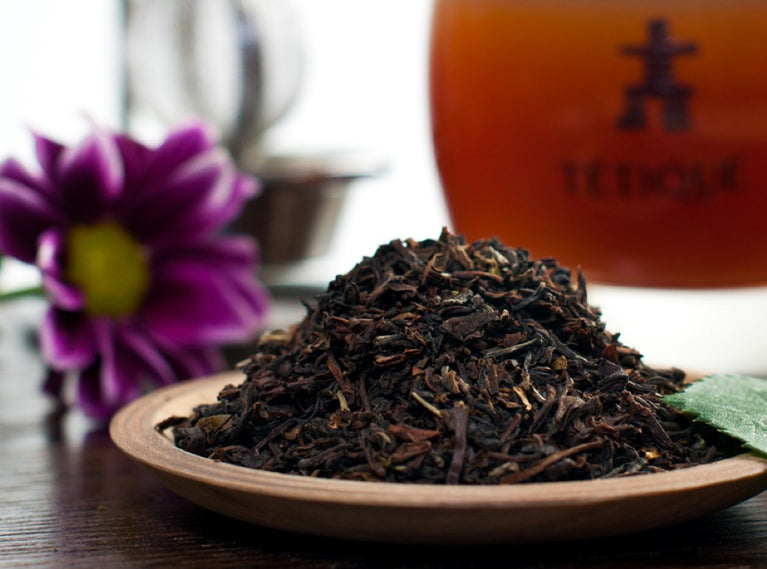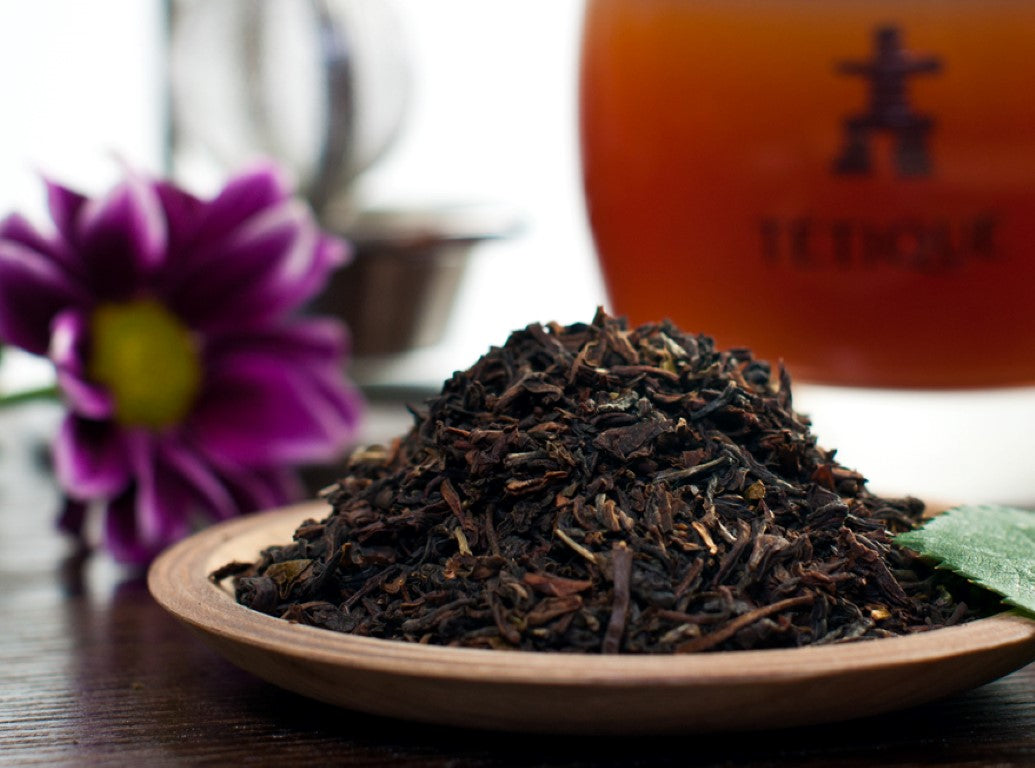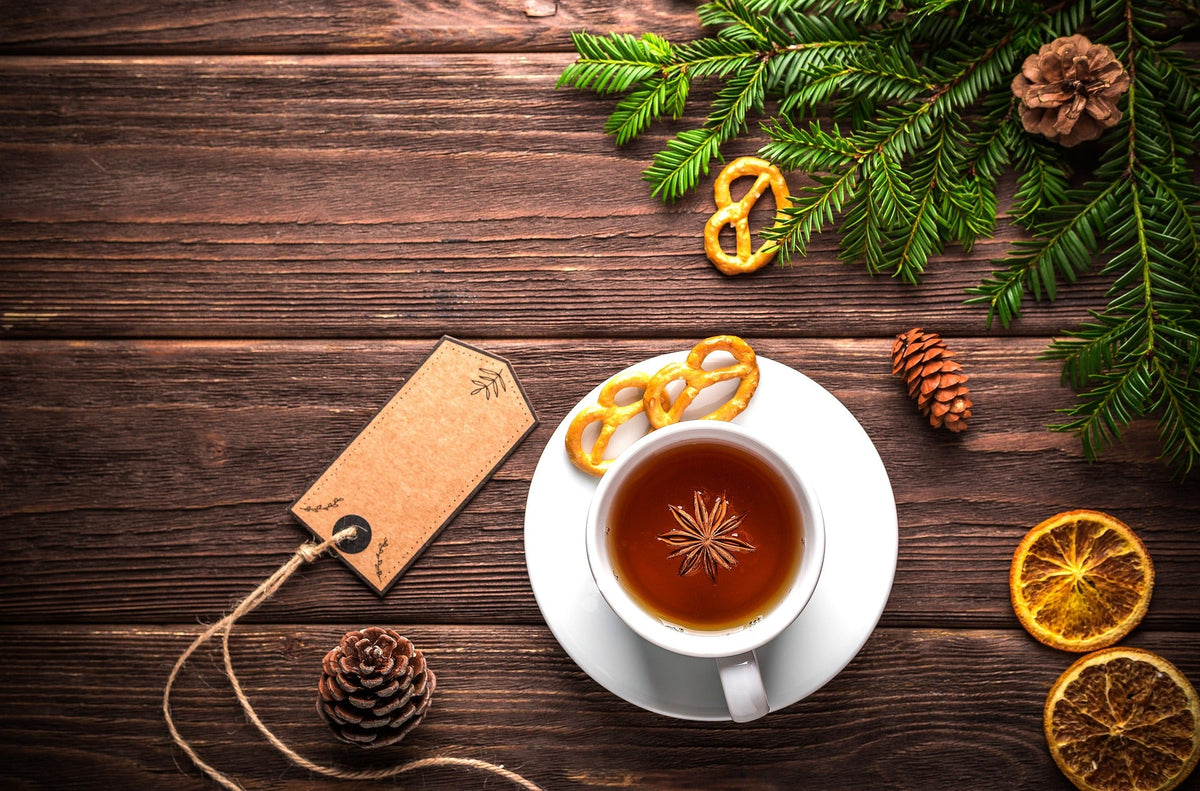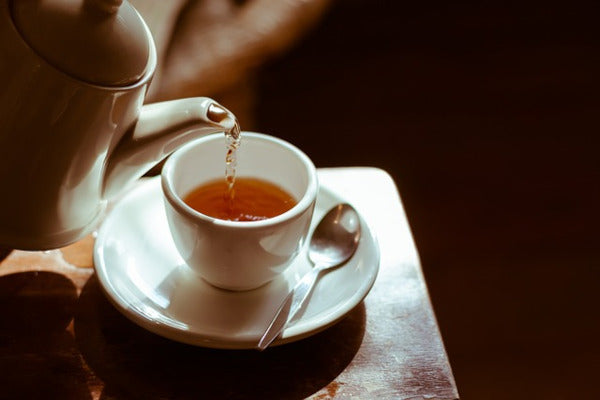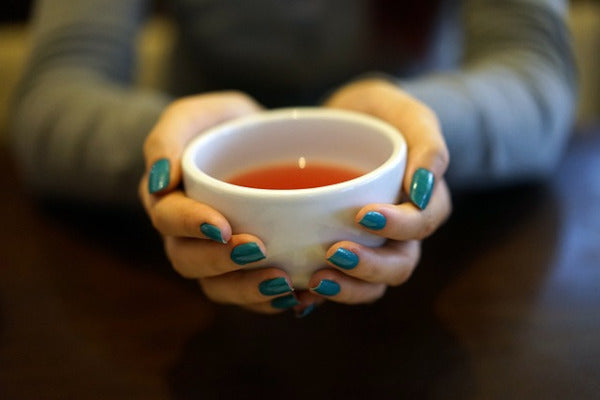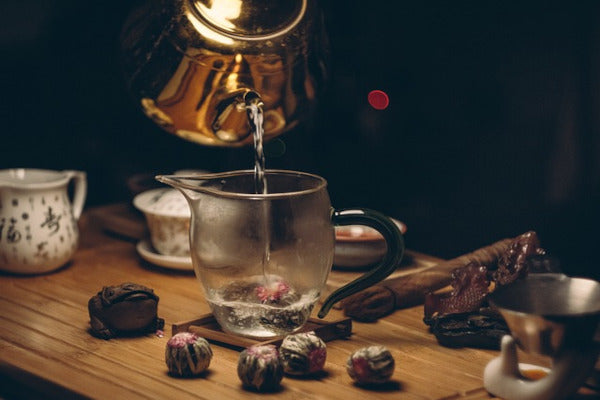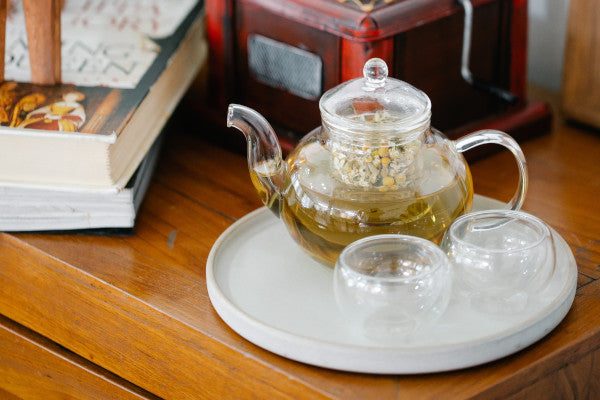Darjeeling tea is arguably one of the finest teas in the world for its unique, rich flavor. This is why it is often referred to as the "champagne of teas." Its name comes from the tea grown in the northeast of India, in the mountain ranges near the Himalayas, the city of Darjeeling.
Surrounding the city at an altitude of 2,000 meters, there are 87 tea estates where the world's finest tea varieties are produced. The tea plants grow slowly under the intense sun, developing a rich, delicate, and flowery flavor. The tea leaves are individually hand-picked and then traditionally blasted, rolled, fermented, and dried.
Approximately 2,000 leaves are required to produce 100 grams of finished Darjeeling tea . There are three main harvesting periods in the preparation of this unique tea.
The spring harvest, also called "First Flush", produces a slightly sweet tea with a floral aroma and bright color.

The second harvest takes place in the summer and is called "Second Flush", the result of the second harvest creates a strong-flavored tea with notes of nutmeg.
The autumn harvest ("Third Flush") tea has a milder flavor and is slightly spicy, the results depend on the location on the mountain, the soil conditions and the type of tea plant used for cultivation, are crucial to the final flavor of Darjeeling tea.
There are many differences regarding how much caffeine contains Darjeeling tea and depends primarily on the type of tea and its origin. Light conditions during growth are crucial to the preparation process.
The caffeine content of tea depends largely on the steeping time during brewing. Darjeeling Black Tea contains 4% caffeine. (on a dry matter basis), that is, if you brew 10 grams of tea in 1 liter of water, the resulting caffeine content will be 200 to 400 milligrams. In comparison, 1 liter of coffee (regular filter coffee) has a caffeine content of 350 to 1,100 mg. The caffeine in coffee is very different from the caffeine in tea, as the caffeine in coffee immediately enters the bloodstream, while the caffeine in tea is absorbed slowly by the body, due to the tannins in tea.
Preparing Darjeeling Tea
There are several things to keep in mind when preparing Darjeeling tea to achieve a richer, more intense flavor. It is recommended to use very soft water, and the water temperature should not exceed 95°C. Under no circumstances should the tea be mixed with boiling water.

Darjeeling First Flush has a mild, floral flavor. For 1 liter of water, use approximately 4 to 5 teaspoons. heaped (10 to 12 grams), let it steep in the (open) teapot for a maximum of 3 minutes. The finished tea has a wonderful golden yellow color.
Darjeeling Second Flush is prepared similarly to Darjeeling First Flush. Since this vintage has a stronger flavor, it takes about 4 minutes to brew. The teapot should remain closed in this case, and the amount of tea used for this tea is 4 to 5 heaped teaspoons per 1 liter of water.
The two varieties differ in flavor, and their color is also completely different, as the brewed Darjeeling second flush tea has an amber color. Autumn Darjeeling has a light and delicate flavor. 10 to 12 grams of tea are used per 1 liter of water, and it should be steeped for 3 minutes.
This variety, however, doesn't achieve the flavor of First or Second Flush. You have to be careful and time your brewing time to avoid steeping Darjeeling tea for too long, as it becomes downright bitter. Therefore, the infusion shouldn't last more than five minutes, because after two to five minutes, the caffeine has completely dissolved, and at that point, the caffeine content is roughly equivalent to a Coca-Cola. When the tea has steeped for up to five minutes, the tapeworm dissolves and counteracts the caffeine. This tea is now soothing and relaxing.
At Tétique, you'll find an exceptional selection of the finest black teas, including the prestigious Darjeeling black tea. Our Darjeeling is a delicacy that will transport you to the high mountains of the Darjeeling region of India, with its delicate and floral flavor.
But we don't stop there. We also offer other popular black teas, carefully selected from various regions around the world. From the aromatic Cinnamon Black Tea to the popular Masala Chai Black Tea , our variety of black teas will allow you to explore a wide range of flavors and aromas.
Benefits of Darjeeling Tea
Darjeeling tea is a stimulating beverage that calms the nerves and is said to have positive effects on concentration. However, Darjeeling tea should be enjoyed in moderation so as not to upset the stomach.
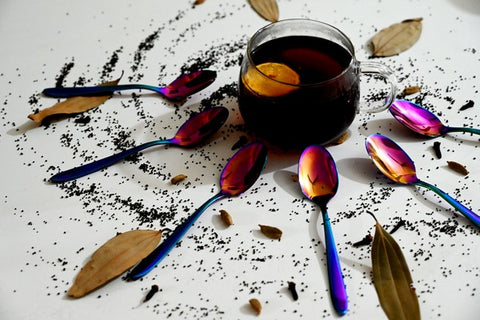
The properties of Darjeeling black tea are many. In addition to caffeine, it contains theobromine and theophylline, which can act as a long-term cough suppressant and vasodilator. The tea leaves also contain important minerals and elements, including magnesium, calcium, and potassium.
Vitamins B1 and B2 are present in this delicious beverage. Did you know that after steeping the tea for 10 minutes, the tannins dissolve completely, making the tea bitter and almost undrinkable? However, this can have a positive effect: because this tea can relieve pain and is antibacterial, it can be applied to mouth and throat sores or drunk in cases of diarrhea.
However, tannins should not be overused, as they can damage the stomach and liver. After drinking black tea, blood pressure increases briefly; however, in the long term, it can have a hypotensive effect, relieve stress, and improve concentration.
Furthermore, the amino acids it contains can strengthen the immune system. If tea is used as a mouthwash, acid-producing bacteria can be controlled, thereby reducing the risk of cavities and hardening tooth enamel. Because it contains fluoride, black and green tea can even support weight loss.
This great-tasting, low-calorie beverage contains many health-promoting ingredients, but since tea can irritate the stomach lining, it's recommended to consume no more than 3 to 4 cups a day. Nursing mothers and pregnant women should limit their consumption to no more than 2 cups a day, as the caffeine it contains can adversely affect the baby's growth.
The tannins in Darjeeling tea can affect the functioning of medications, so drinking tea while taking pills is not recommended.
At Tétique, we are proud to be the supplier of Darjeeling black tea in Spain. This treasure from the Darjeeling Mountains of India is prized for its delicate flavor and distinctive floral aroma.
We make sure to carefully select the finest Darjeeling black tea harvests from renowned plantations in the region. Our commitment to quality and authenticity distinguishes us as a trusted supplier of this unique treasure.
If you're looking to offer your customers an exceptional Darjeeling black tea experience, trust Tétique as your trusted supplier. We strive to provide impeccable service and ensure that every cup of Darjeeling black tea you serve is a memorable experience.
Discover the charm and elegance of Darjeeling black tea with Tétique. Let us be your partner in the pursuit of tea perfection and provide your customers with a refined and distinctive flavor with every sip.
